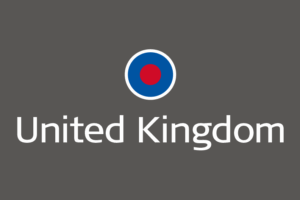UK Defined Contribution Pension Law Update
 Major changes in UK defined contribution (DC) pensions law are underway following the introduction of the new Pension Schemes Bill, revised regulatory expectations, and evolving standards on retirement and stewardship. Multinational employers must take proactive steps to ensure their UK operations remain compliant and support workforce retirement outcomes. Barnett Waddingham, a part of Howden, provides a thorough review of the subject in its DC Pensions Technical Update. Highlights from the report are outlined below.
Major changes in UK defined contribution (DC) pensions law are underway following the introduction of the new Pension Schemes Bill, revised regulatory expectations, and evolving standards on retirement and stewardship. Multinational employers must take proactive steps to ensure their UK operations remain compliant and support workforce retirement outcomes. Barnett Waddingham, a part of Howden, provides a thorough review of the subject in its DC Pensions Technical Update. Highlights from the report are outlined below.
Key Highlights for Multinational Employers
1. Pension Schemes Bill: Consolidation and Compliance
-
The Pension Schemes Bill (introduced June 5, 2025) aims to consolidate DC schemes into larger entities, enhance saver outcomes, and drive investments in UK growth assets.
-
Employers operating small DC trust schemes in the UK should strongly consider transitioning to master trusts or larger modern arrangements to align with the new focus on scale. The Pensions Regulator (TPR) urges schemes unable to compete or demonstrate value to wind up and transfer members to better-value schemes.
-
The Bill introduces Value for Money (VfM) assessments with increased regulatory scrutiny and fines for non-compliance, recently close to £100,000 for 19 schemes. Employers must ensure their UK pension arrangements are subject to robust VfM reviews and governance.
-
Bulk transfers without individual member consent will become easier and are encouraged for legacy or less competitive schemes.
2. Inheritance Tax (IHT) Changes
-
From 6 April 2027, most unused pension funds and insured death benefits will be included in an individual’s estate for IHT purposes, subject to the estate exceeding the nil-rate band (£325,000, subject to some exemptions).
-
Notably, group life assurance (‘death-in-service’ benefits from registered schemes) and dependants’ scheme pensions remain excluded.
-
Personal representatives (not pension scheme administrators) must report and pay IHT due on pension assets. Employers must review their death benefit and group life arrangements to ensure ongoing compliance and communication with employees.
3. Workplace DC Risk Management
-
TPR has identified common errors in employer pension contributions, stemming from poor payroll integration, incorrect earnings thresholds, and miscommunications—particularly around maternity pay.
-
These errors lead to member financial loss, reputational risk, and potential fines.
-
Employers must regularly audit payroll systems, contribution processes, and employee communications. This is vital during organisational changes, new pension scheme setup, or when implementing salary sacrifice arrangements.
4. Revised UK Stewardship Code
-
From 1 January 2026, asset managers must evidence real-world outcomes from stewardship activities, including clear reports on voting, engagement, and climate-related action.
-
Employers should engage with trustees and managers, demanding meaningful stewardship reporting and ensuring all assets—including illiquid and private—are covered by robust stewardship policies.
5. Innovation and Dashboard Connectivity
-
TPR’s new Innovation Hub encourages digital engagement, personalised projections, and improved at-retirement solutions.
-
Employers should ensure their pension providers are preparing for Pensions Dashboards connectivity, with a delivery plan reviewed frequently.
6. Retirement Living Standards Update
-
The Retirement Living Standards (RLS) provide new benchmarks for “Minimum,” “Moderate,” and “Comfortable” retirement living in one-person and two-person UK households.
-
Employers should support staff by signposting retirement calculators and financial planning tools to help forecast and budget for retirement.
7. CDC Schemes Expansion
-
New legislation will allow unconnected multi-employer Collective Defined Contribution (CDC) schemes, widening access for diverse workforces.
-
Employers may benefit from reviewing CDC as an option for their UK employees alongside traditional DC arrangements.
READ THE FULL REPORT
Action List for Multinational Employers
-
Review and update UK DC pension arrangements: Consolidate small schemes, audit governance, and ensure strong VfM assessments.
-
Audit payroll and pension contribution processes regularly for compliance, especially if operating in multiple jurisdictions or with complex pay structures.
-
Update employee communications regarding IHT changes, death benefits eligibility, and new stewardship standards.
-
Engage with scheme administrators, trustees, and advisers to ensure dashboard connectivity and alignment with the Innovation Hub initiatives.
-
Support employees’ retirement planning via access to RLS, budgeting tools, and financial education.
-
Monitor regulatory developments—changes will phase in over several years, so ongoing compliance and planning are essential.
This article about UK Defined Contribution Pension Law Update is provided by Howden, Asinta’s employee benefits consulting Partner in the UK. If you need support with your benefits in the country, please contact Asinta, and we will put you in touch with the local experts at Howden.
